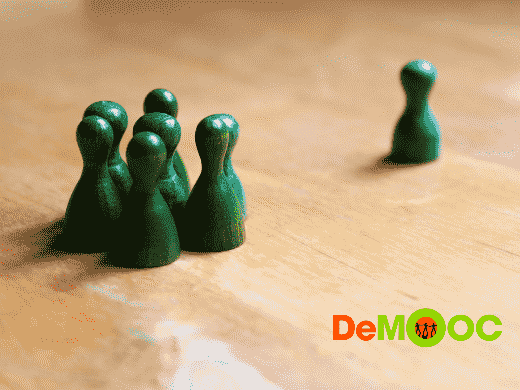
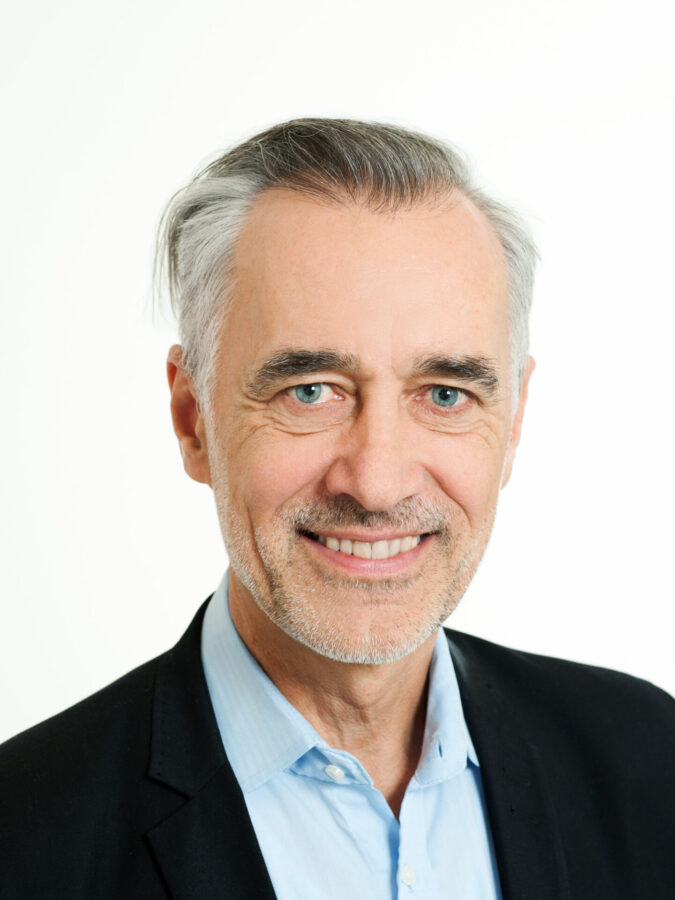
Univ.-Prof. Dr. Dirk Lange is a university professor for didactics of civic education at the University of Vienna. He has headed the Demokratiezentrum Wien since 2018 and is director at the Institute for Didactics of Democracy at the University Hannover. For many years, Dirk Lange was federal chairman of the German Association for Civic Education (DVPB) and director of the Agency for Adult and Continuing Education in Lower Saxony. He has varied international experiences, among others as an Honorary Professor at the University of Sydney (Australia) and as a Visiting Professor at the University of Zurich (Switzerland). His central research object is civic consciousness. His current work focuses on inclusive citizenship education, digitalization and civic education as well as global citizenship education.
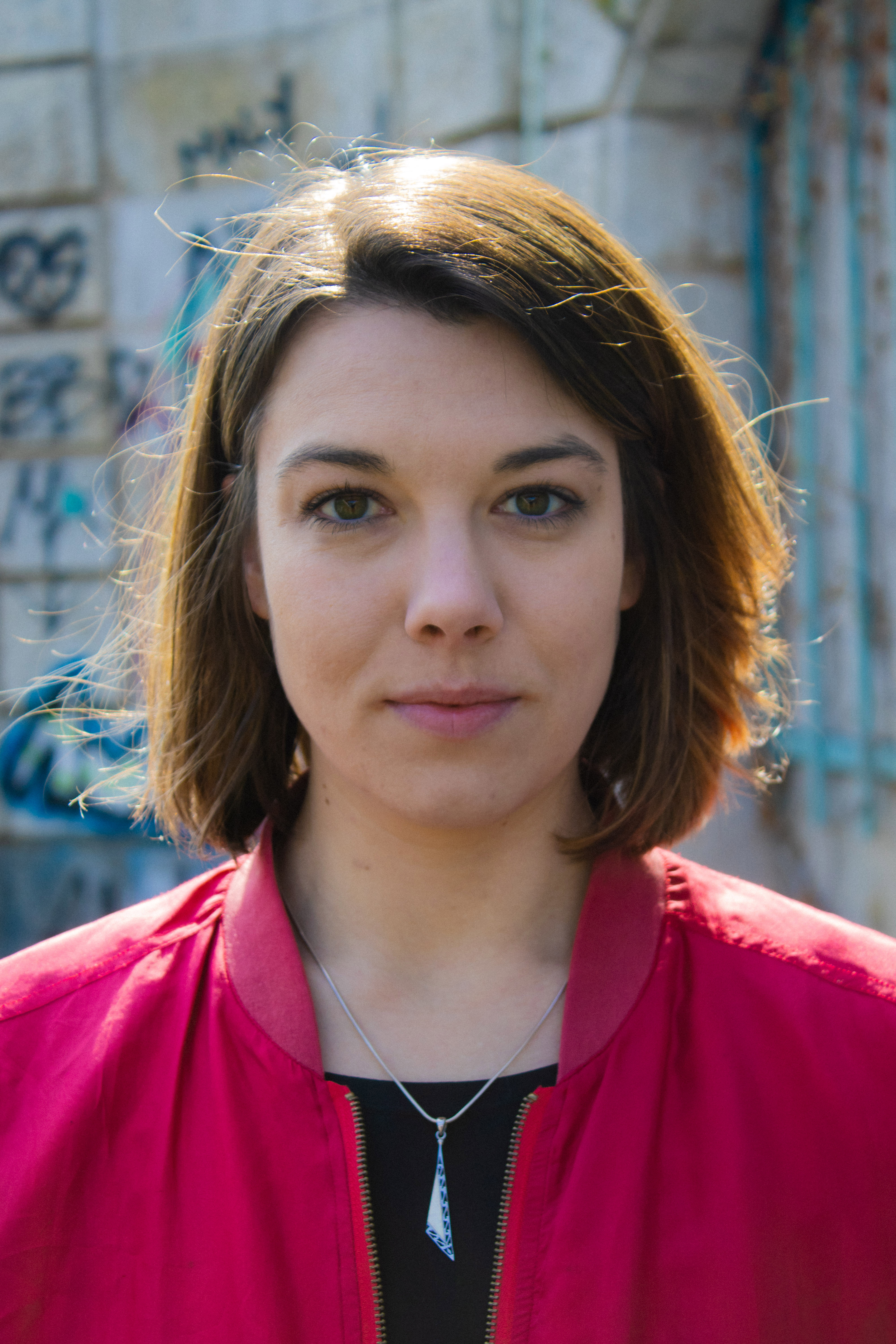
Stefanie Fridrik, BA BA MA is a research associate and project manager at the Demokratiezentrum Wien (Democracy Center Vienna). She conducts research at the intersection of political, cultural and transformative education, cultural policy, and critical art education. She studied art history and comparative literature at the University of Innsbruck and the University of Vienna and has also worked as an art educator in the museum and independent sector since 2018. Between 2020 and 2022 she worked as a research assistant (Prae Doc) in the research project AGONART at the Institute of Political Science at the University of Vienna. Since 2022 she is doing her PhD at the Institute for Art Education at the HFBK Hamburg and works as a research assistant at the Democracy Center Vienna. Her tasks include the conception, coordination and implementation of workshops and seminars for different target groups and the supervision of projects of democratic political education for adults in the e-learning field.
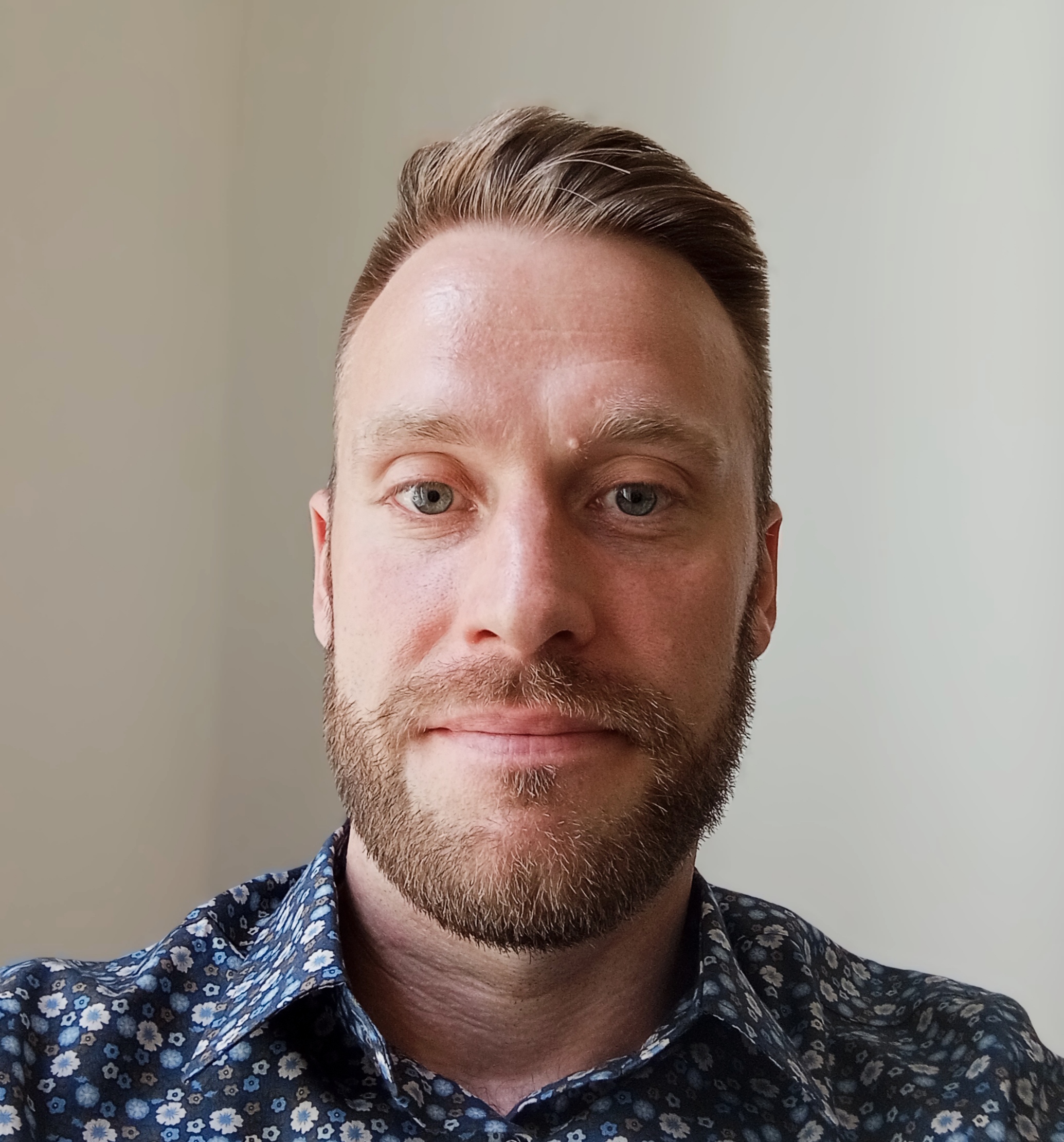
Josef Mühlbauer, BA MA is a research associate at the Demokratiezentrum Wien (Democracy Center Vienna). He studied political science and philosophy at the University of Vienna. His tasks at the Demokratiezentrum Wien include in particular interdisciplinary research and advanced training in the field of the Conflict – Peace – Democracy Cluster (CPDC). He is also involved in e-learning projects in the field of democratic political education for adults. He published the book "Zur imperialen Lebensweise" in 2022 and the book "Kritische Friedensforschung" in 2023.
Welcome to the in-depth course “DeMOOC: Exclusions in concrete terms – What prevents democratic participation?” of the Demokratie MOOC!
What is the Demokratie MOOC?
The MOOC series “Demokratie MOOC” - DeMOOC for short - is a free online course series for openly accessible and digital democratic political education for adults, which is being implemented in a cooperation between the Association of Austrian Adult Education Centers and the Democracy Center Vienna. The DeMOOC is offered in several modular self-study courses and runs without a time limit, so that participation is possible regardless of time and place. The courses in the DeMOOC series help participants to build up a basic knowledge of democracy, politics, political processes and social structures so that they can integrate this knowledge into their own lives. The various main topics are always related back to issues relevant to democratic politics in order to promote the strengthening of critical and responsible citizenship.
Further information on the MOOC series “Demokratie MOOC” can be found at:
Who is this course aimed at?
The MOOC “DeMOOC: Exclusions in concrete terms – What prevents democratic participation?” expands and deepens the content of the course program. The course is aimed at teachers and multipliers who would like to delve deeper into different dimensions and dynamics of social exclusion in the context of opportunities for political participation, in order to integrate it into their educational work. In addition to multimedia, specialist input for developing and reflecting on the content, the DeMOOC offers examples and materials for didactic preparation as suggestions for educational work. With the compactly compiled information texts the course is additionally directed towards learners who want to inform themselves about questions and problems in relation to societal exclusion and exclusion criteria.
Although the MOOC is thematically linked to previous courses in the DeMOOC series, it can be completed independently of them. You will find an introductory video to the DeMOOC embedded in the first unit of the basic course part 1:
The in-depth course “DeMOOC: Exclusions in concrete terms – What prevents democratic participation?” offers participants a specialized, in-depth
treatment of content from the subject area of civic education, democracy
building and anti-discrimination work. To this end, the course first provides a
theoretical basis, introducing various forms and mechanisms of intersectional,
multidimensional as well as structural exclusion. As part of this, essential
concepts are clarified in the context of their implications for democracy.
Another focus is on linking these dynamics with areas of everyday life and
practice, discussing such examples such as the design of public urban spaces or
the issue of care work. Finally, selected examples of good practice will be
used to highlight various possibilities for action to combat societal exclusion
and marginalization. In particular, examples will be presented that contribute
to a more inclusive civic practice.
By completing the courses in the DeMOOC series, participants should be able to develop a deeper understanding of democracy, politics and society at various political levels in order to strengthen their own access to politics and experience their own active participation in the political system. The aim of the DeMOOC is to strengthen political education in adult education, in extracurricular and school education, but also among generally interested people. The DeMOOC is therefore particularly suitable for multipliers, course planners, teachers, social workers, educators and anyone interested in the field of civic education. The programs in the “Initiative Erwachsenenbildung” as well as many other course and offer areas in adult education can also benefit from the DeMOOC.
The in-depth course “DeMOOC: Exclusions in concrete terms – What prevents democratic participation?“ aims to sensitize participants to forms of societal exclusion and marginalization mechanisms in order to recognize that exclusion is not only happening on an interpersonal, personal level, but is also structurally embedded. The course should further enable reflection on both, the political consequences within a democracy and on the effects of structural exclusions on everyday life. Looking at examples of good practice also opens up perspectives on knowledge and experiences of various practice actors from the field and thus combines the theoretical foundations with (civic) practical knowledge.
Besides a basic factual understanding of concepts and terms, participants in the MOOC will also receive impulses and documents for addressing this topic in their own educational work. To this end, didactic material for adult education will also be offered.
No previous knowledge is necessary.
This MOOC consists of four units, which are self-contained but build on each other, and focus on various topics. Each unit is in turn divided into sub-chapters and contains media content (explanatory video(s), radio clips) and informational texts as well as specific tasks and a didactic preparation of the topics. Each unit ends with a quiz and a discussion forum.
Unit 1 is the thematic basis and the most comprehensive lesson of the course. It clarifies key terms and concepts related to exclusions from democratic participation. Unit 2 and 3 build on this, offering selected in-depth topics and illustrating the theoretical concepts with some concrete examples from areas of everyday life. Within the final unit 4, the focus lies on selected examples of good practice and the opportunities of action they offer.
Unit 1: Exploring the terms “exclusion” and “marginalization”
Workload: approx. 4 hours
Unit 2: Structural & institutional dimensions of
exclusion
Workload: approx. 4 hours
Unit 3: Exclusion mechanisms in areas of everyday life
Workload: approx. 4 hours
Unit 4: Good practice examples & measures for inclusion
Workload: approx. 4 hours
The units are activated individually on a weekly basis and are then freely available as a self-study course for an unlimited period of time.
For active participation in the course, upon
completion, an automated certificate will be issued, which will include your
username, the course name and the completed units. It should be noted that this
is only a confirmation that the user has correctly answered at least 75% of the
self-assessment questions (multiple choice quiz) asked.
Unless otherwise indicated, the content provided
in the course is made available under the following license: CC BY 4.0 Demokratiezentrum
Wien. The content may be used for educational and other non-commercial purposes
on the condition that the following name is cited as the source: Demokratiezentrum
Wien. External linked materials, videos etc. may be excluded from the Creative
Commons license. Please note the applicable regulations.
A MOOC developed and created by
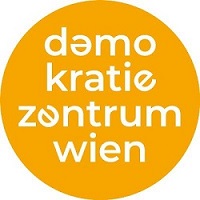
The Demokratiezentrum Wien (Democracy Center Vienna) is an independent scientific institution with tasks in democracy researchand democracy education. Our empirical and theoretical research serves the scientific knowledge, the democratic political discourse and the transfer into educational offers. In the sense of a subject-oriented and emancipative civic education, our guiding idea in our educational offers is the promotion of citizens’ maturity and their ability to participate politically.
Content-related assistence: Anja Fellner, BA
On behalf of
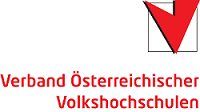
The Association of Austrian Adult EducationCenters is the umbrella organization of all 256 Austrian adult education
centers and one of ten associations in the Conference of Adult Education
Austria, the working platform of non-profit adult education. In their more than
one hundred years of history, the adult education centers have developed and
implemented important and innovative offers for political and contemporary
education. Democracy education is an important concern, and the Conference of
Austrian Adult Education is vehemently committed to its implementation in
Austrian adult education. The Democracy MOOC is made available to all actors in
adult education, further education and training.
Funded by the Federal Ministery of Education, Science and Research.

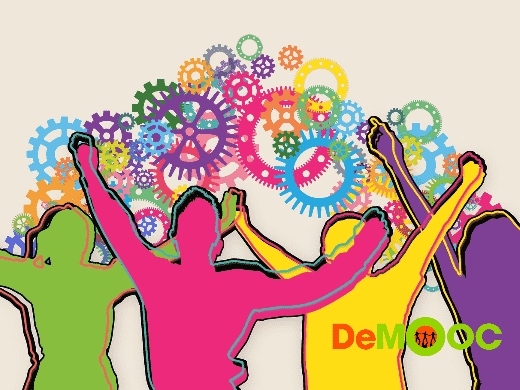
Univ.-Prof. Dr. Dirk Lange is a university professor for didactics of civic education at the University of Vienna. He has headed the Demokratiezentrum Wien since 2018 and is director at the Institute for Didactics of Democracy at the University Hannover. For many years, Dirk Lange was federal chairman of the German Association for Civic Education (DVPB) and director of the Agency for Adult and Continuing Education in Lower Saxony. He has varied international experiences, among others as an Honorary Professor at the University of Sydney (Australia) and as a Visiting Professor at the University of Zurich (Switzerland). His central research object is civic consciousness. His current work focuses on inclusive citizenship education, digitalization and civic education as well as global citizenship education.
Stefanie Fridrik, BA BA MA is a research associate at the Democracy Center Vienna. She conducts research in the fields of civic and cultural education, cultural policy, and critical art education. She studied art history and comparative literature at the University of Innsbruck and the University of Vienna and has also worked as an art educator in the museum and independent sector since 2018. Between 2020 and 2022 she worked as a research assistant (Prae Doc) in the research project AGONART at the Institute of Political Science at the University of Vienna. Since 2022 she is doing her PhD at the Institute for Art Education at the HFBK Hamburg and works as a research assistant at the Democracy Center Vienna. Her tasks include the conception, coordination and implementation of workshops and seminars for different target groups and the supervision of projects of democratic political education for adults in the e-learning field.
Nicola Nagy, BA MA is a research associate at the Democracy Center Vienna. She studied political science, philosophy and history at the Free University of Berlin and at Sciences Po Paris. After graduation, she worked in civic education and media education with young people and as a curator at the Friedrichshain-Kreuzberg Museum in Berlin. In 2021, she completed the Cultural Mediation course at the Institute for Cultural Concepts in Vienna. Since 2022, she has been a research assistant at the Democracy Center Vienna and at the Department of Didactics of Civic Education at the University of Vienna, where she is writing her doctoral thesis on Inclusive Citizenship Education against Social Inequality: Biographies of Viennese Youth between Experiences of Exclusion and Political Participation. Her tasks include the conception and coordination of workshops and seminars for different target groups. She is also involved in projects of democratic education for adults in the field of e-learning as well as in supporting the committee work of the FSW Client Council.
Welcome to the in-depth course “DeMOOC: Democracy and Participation – Political involvement and participation in everyday practice” of the Demokratie MOOC (DeMOOC)!
What is the Demokratie MOOC?
The MOOC series “Demokratie MOOC” - DeMOOC for short - is a free online course series for openly accessible and digital democratic political education for adults, which is being implemented in a cooperation between the Association of Austrian Adult Education Centers and the Democracy Center Vienna. The DeMOOC is offered in several modular self-study courses and runs without a time limit, so that participation is possible regardless of time and place. The courses in the DeMOOC series help participants to build up a basic knowledge of democracy, politics, political processes and social structures so that they can integrate this knowledge into their own lives. The various main topics are always related back to issues relevant to democratic politics in order to promote the strengthening of critical and responsible citizenship.
Further information on the MOOC series “Demokratie MOOC” can be found at:
Who is this course aimed at?
The MOOC “DeMOOC: Democracy and Participation – Political involvement and participation in everyday practice” is aimed at teachers and multipliers who would like to delve deeper into the topic of participation in the context of democracy education in order to integrate it into their educational work. For this purpose, the course not only offers a professional overview of forms and models of political participation – especially with reference to everyday practice – but also provides materials and methods for teaching. Thus, on the other hand, it addresses learners who want to get to know different aspects of the topic as well as concrete (political) participation possibilities.
Although the MOOC is thematically linked to previous courses in the DeMOOC series, it can be completed independently of them. You will find an introductory video to the DeMOOC embedded in the first unit of the basic course part 1:
The in-depth course “DeMOOC: Democracy and Participation – Political involvement and participation in everyday practice” offers
participants a specialized, in-depth treatment of content from the subject area
of civic education, democracy building and participation. The MOOC is based on
a broad concept of participation that goes beyond conventional forms of
participation such as participation in elections or instruments of direct
democracy such as petitions for referendums, public opinion polls or referendums.
The aim is thus to tap into different forms of participation in order to be
able to perceive political participation as part of one’s own everyday
practice.
By completing the courses in the DeMOOC series, participants should be able to develop a deeper understanding of democracy, politics and society at various political levels in order to strengthen their own access to politics and experience their own active participation in the political system. The aim of the DeMOOC is to strengthen political education in adult education, in extracurricular and school education, but also among generally interested people. The DeMOOC is therefore particularly suitable for multipliers, course planners, teachers, social workers, educators and anyone interested in the field of civic education. The programs in the “Initiative Erwachsenenbildung” as well as many other course and offer areas in adult education can also benefit from the DeMOOC.
In the context of the in-depth course, the participants deal with different approaches and courses of action in relation to the topics of participation and involvement. The aim is to provide the participants with comprehensive perspectives and reflections on the diverse possibilities of political and social participation in and for democracies. In this way, they are strengthened to grasp the importance of everyday cultural and political spaces of negotiation for democracy, which in turn supports their self-image as an active part of a democratically constituted society and politics. In addition to a basic factual understanding of participation processes and modalities, the participants of the MOOC also receive impulses and material for the thematization of this complex of topics in their own educational work. For this purpose, didactic basics for adult education are offered.
No previous knowledge is necessary.
The MOOC consists of four units that build on each other and offer content-related and methodological links to each other. Each unit is divided into subsections and contains explanatory video(s) and information texts as well as tasks and a didactic preparation of the topics. Each unit ends with a quiz and a discussion forum. Unit 1 represents the thematic basis and the most comprehensive lesson of the course. Unit 2 to 4 build on this and represent more in-depth content (with a lower workload).
Unit 1: On the concept of participation: Forms and models of democratic participation and involvement
Workload: approx. 5 hours
Unit 2: Participation and Citizenship Education
Workload: approx. 3 hours
Unit 3: E-Participation: Participation formats in digital space
Workload: approx. 3 hours
Unit 4: Cultural and social participation in democracy
Workload: approx. 3 hours
The units are activated individually on a weekly basis and are then freely available as a self-study course for an unlimited period of time.
For active participation in the course, upon
completion, an automated certificate will be issued, which will include your
username, the course name and the completed units. It should be noted that this
is only a confirmation that the user has correctly answered at least 75% of the
self-assessment questions (multiple choice quiz) asked.
Unless otherwise indicated, the content provided
in the course is made available under the following license: CC BY 4.0 Demokratiezentrum
Wien. The content may be used for educational and other non-commercial purposes
on the condition that the following name is cited as the source: Demokratiezentrum
Wien. External linked materials, videos etc. may be excluded from the Creative
Commons license. Please note the applicable regulations.
A MOOC developed and created by

The Demokratiezentrum Wien (Democracy Center Vienna) is an independent scientific institution with tasks in democracy research and democracy education. Our empirical and theoretical research serves the scientific knowledge, the democratic political discourse and the transfer into educational offers. In the sense of a subject-oriented and emancipative civic education, our guiding idea in our educational offers is the promotion of citizens’ maturity and their ability to participate politically.
Content-related cooperation: Petra Kolb, MA studied Political Science and International Development at the University of Vienna and worked as a student assistant in the fields of Austrian Politics and European Politics at the Institute of Political Science. She has been working at the Democracy Center Vienna since July 2022 and will start as a PhD student in the field of Didactics of Civic Education at the Center for Teacher Education at the University of Vienna in March 2023. Sarah Wabl, BA BEd studied Political Science as well as German, History/Civic Education and Psychology/Philosophy at the University of Vienna. Between October 2022 and January 2023 she worked as an intern at the Democracy Center Vienna and is currently completing her MEd studies at the University of Vienna.
On behalf of

The Association of Austrian Adult Education Centers is the umbrella organization of all 256 Austrian adult education centers and one of ten associations in the Conference of Adult Education Austria, the working platform of non-profit adult education. In their more than one hundred years of existence, the adult education centers have developed and implemented important and innovative offers for political and contemporary education. Democracy education is an important concern, and the Conference of Austrian Adult Education is vehemently committed to its implementation in Austrian adult education. The Democracy MOOC is made available to all actors in adult education, further education and training.
Funded by the Federal Ministery of Education, Science and Research.
![]()
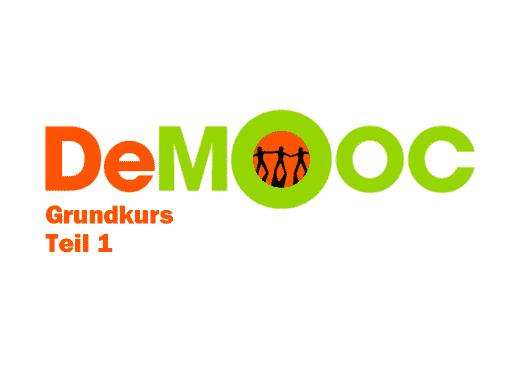
Christin Reisenhofer MA is a research assistant at the Democracy Center Vienna. Her tasks include the conception and implementation of workshops on political education as well as the content creation, design and supervision of the DeMOOC. She studied education sciences (master's degree) and history, social studies and political education as well as German as part of her teaching degree. At the University of Vienna, she worked as a study assistant in the field of psychoanalytical pedagogy, as a tutor for various courses and as a didactic writing mentor. At Danube University Krems, she is an external lecturer in the eEducation master's programme and is jointly responsible for the media education and didactics module.
Gerhard Bisovsky Dr. is Secretary General of the Association of Austrian Adult Education Centers (VÖV). He studied political science and wrote a dissertation on state adult education policy. Bisovsky has many years of practical experience in adult education, has lectured on adult education at Austrian universities and in Germany, has written numerous specialist articles and is active in the further training of adult educators. From 1996 to 2012, he was head of the Vienna Adult Education Center Meidling, where he also developed digitally supported learning (eLearning). From 2008 to 2012, he managed the network project “Educational Counseling in Vienna”. He has several years of experience in and with European education projects and was a board member of the European Association for Adult Education (EAEA) from 2012 to 2017. Since 2012, he has been editor-in-chief of the magazine “Die Österreichische Volkshochschule”(http://magazin.vhs.or.at) and head of the media awards office, which awards the radio prize and the television prize for adult education as well as the VÖV science prizes.
Gertraud Diendorfer is Chairwoman of the Board of the Democracy Center Vienna and was its long-standing director until 2018. Her work focuses on democracy research, political education, (e-)participation, migration and integration, gender history. She has curated several exhibitions, most recently “Democracy - the basis of our coexistence”, and has extensive expertise in the development of (online) teaching and learning materials. Founder of the Forum Politische Bildung and co-publisher and editor of the publication series "Informationen zur Politischen Bildung".
Prof. Dr. Dirk Lange is a university professor for the didactics of civic education at the University of Vienna. He has headed the Vienna Democracy Center since March 2018 and is Director of the Institute for Didactics of Democracy at the University of Hanover. Dirk Lange was Federal Chairman of the German Association for Civic Education (DVPB) for many years and Director of the Agency for Adult and Continuing Education in Lower Saxony. He has a wide range of international experience, including as Honorary Professor at the University of Sydney (Australia) and Visiting Professor at the University of Zurich (Switzerland). His main area of research is civic awareness. His current research focuses on inclusive citizenship education, digitalisation and civic education as well as global citizenship education.”
Ulrich Ballhausen is a research associate at the Institute for Didactics of Democracy at Leibniz Universität Hanover and a lecturer at the University of Vienna and Koblenz University of Applied Sciences and Arts. He has been active for 30 years in non-formal political youth and adult education as well as in numerous committees and expert groups in (European) political education, international work and historical-political education. As chairman of the Working Group of German Educational Institutions, the largest association of educational institutions for political youth and adult education in Germany, he plays a key role in shaping this professional field in Germany.
Welcome to the "DeMOOC: Basic course part 1" of the Demokratie MOOC!
What is the Demokratie MOOC?
The MOOC series “Demokratie MOOC” - DeMOOC for short - is a free online course series for openly accessible and digital democratic political education for adults, which is a cooperation between the Association of Austrian Adult Education Centers and the Democracy Center Vienna. The DeMOOC is offered as several modular self-study courses and is open until further notice, so that participation is possible regardless of time and place. The courses in the DeMOOC series help participants gain a basic knowledge of democracy, politics, political processes and social structures so that they can integrate this knowledge into their own lives. The various main topics are always related to issues relevant to democratic politics in order to promote the strengthening of critical and responsible citizenship.
Further information on the MOOC series “Demokratie MOOC” can be found at:
Democracy MOOC – Democratic political education for adults
Who is this course aimed at?
The basic courses parts 1 to 3 of the DeMOOC represent a curriculum for democratic political education, with complete teaching and learning materials available. On the one hand, these MOOCs serve the further education of anyone interested, disseminators, course creators, teachers or (social) educators. On the other hand, the MOOCs also provide materials and methods so that participants also feel motivated and able to develop and offer their own courses, lessons or projects on civic education.
The basic courses part 2 and part 3 of the DeMOOC can be found here:
By completing the DeMOOC, students will be able to develop a deeper understanding of democracy, politics and society at various political levels in order to strengthen their own access to politics and experience their own active participation in the political system.
To achieve this, it is necessary to build a certain basic knowledge of democracy, politics, political processes and social structures in order to be able to put this knowledge into practice and to integrate it into one's own life. The course strenghtens the participants' self-perception as active and responsible citizens, and expands their relevant knowledge and skills. This knowledge will also have a positive influence on your own future course design, pedagogical work or teaching.
The aim of the DeMOOC is to strengthen civic education in adult education, in extracurricular and school education, but also among generally interested parties. The DeMOOC is therefore particularly suitable for disseminators, course planners, teachers, social workers, educators and anyone interested in the field of civic education. The programmes in the “Adult Education Initiative” as well as many other course and service providers in adult education can also benefit from the DeMOOC.
No previous knowledge is necessary.
Module structure of the MOOC
Module 1: Politics and democracy
Module 2: Options for action in the Austrian political system
Module 3: Democracy and the media
Module 4: History of democracy - the struggle for democracy
Module 5: Migration, integration and identities
Module 6: Democracy in Europe and democracies worldwide
Module 7: Fundamental rights and the rule of law
Module 8: Democracy and the economy
Module 9: Freedom and security
Module 10: State, ideologies and religions
For actively participating in the course you will receive an automatic confirmation of participation (certificate) which includes your username, the course title, course duration as well as the hours required to complete the course. We want to point out that this certificate merely confirms that the user answered at least 75% of the self-assessment questions correctly.
This work is licensed under a {licenselink}
A MOOC developed and created by
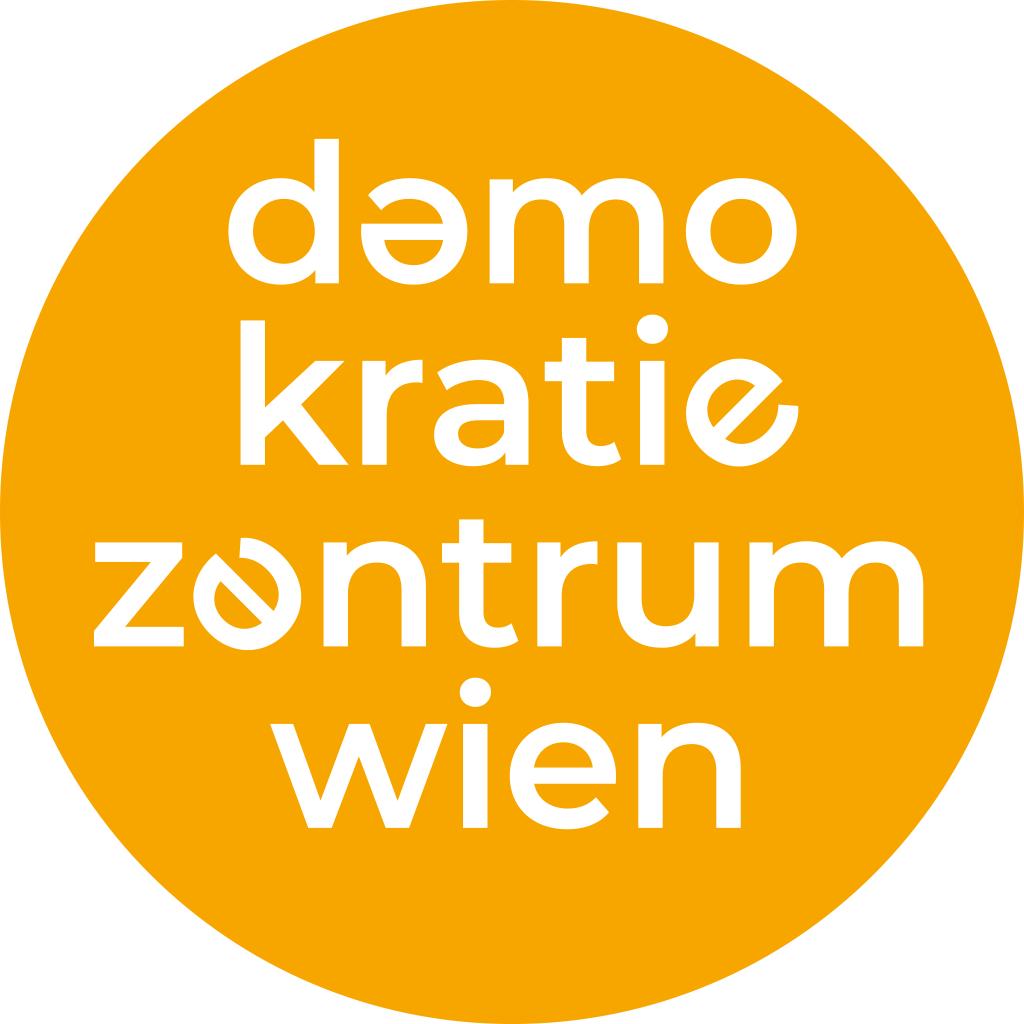
The Vienna Democracy Center is an independent scientific institution with tasks in democracy research and democracy education. Our empirical and theoretical research serves scientific knowledge, democratic political discourse and the transfer into educational programs. In the sense of subject-oriented and emancipative civic education, our guiding principle in our educational programmes is the promotion of citizens' maturity and their ability to participate in politics.
Text creation: Module 1: Dr. Günther Sandner; Module 2, 7, 9, 10: Susanne Reitmair-Juárez MA; Module 4, 9: Simon Usaty MA; Susanne Reitmair-Juárez MA; Module 3, 6, 8 Christin Reisenhofer BA; Module 10 Susanne Reitmair-Juárez MA; Jessica Moser MA; Supplementary in-depth documents: Lea Hintenberger MA; Collaboration by Kerstin Scheibenpflug, BA
On behalf of
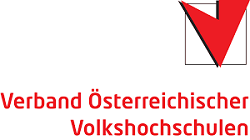
The Association of Austrian Adult Education Centres is the umbrella organisation of all 256 Austrian adult education centres and one of ten associations in the Austrian Conference of Adult Education, the working platform for non-profit adult education. In their more than one hundred years of history, the adult education centers have developed and implemented important and innovative offers for political and contemporary education. Democracy education is an important matter that the Austrian Adult Education Conference is committed to implementing in Austrian adult education. The Democracy MOOC is available to all actors in adult education, further education and training.
Funded by the Federal Chancellery (Year of Remembrance), the Future Fund of the Republic of Austria and the Chamber of Labor.
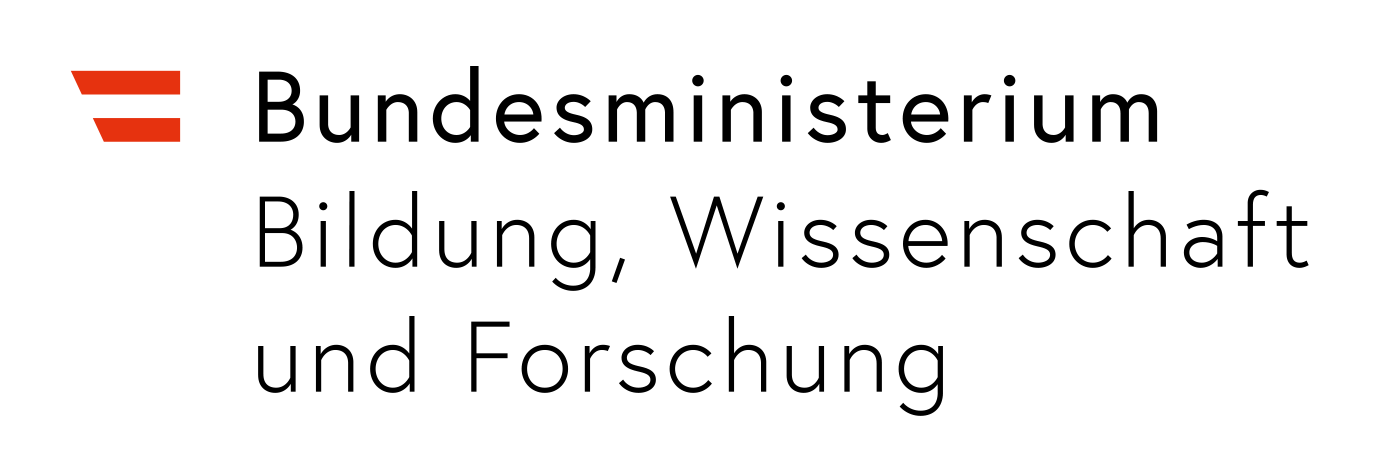
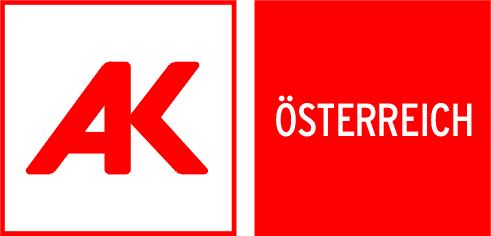


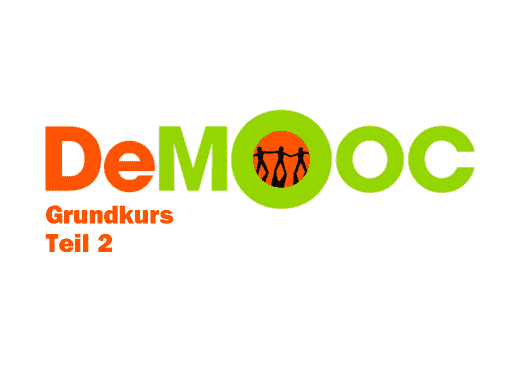
{mlang de}
Mag. Christin Reisenhofer MA ist wissenschaftliche Mitarbeiterin am Demokratiezentrum Wien. Zu ihren Aufgaben gehören die Konzeption und Durchführung von Workshops zur Politischen Bildung sowie die inhaltliche Erstellung, Gestaltung und Betreuung des DeMOOCs. Sie studiert Bildungswissenschaft (Masterstudium) und Geschichte, Sozialkunde und Politische Bildung sowie Deutsch im Rahmen des Diplom-Lehramtstudiums. An der Universität Wien war sie Studienassistentin im Arbeitsbereich der Psychoanalytischen Pädagogik, als Tutorin für verschiedenste Lehrveranstaltungen sowie als didaktische Schreibmentorin tätig. An der Donau Universität Krems ist sie als externe Lehrbeauftragte im Rahmen des Master-Universitätslehrgangs eEducation für die Betreuung des Moduls Medienpädagogik und -didaktik mitverantwortlich.
Gerhard Bisovsky Dr. ist Generalsekretär des Verbandes Österreichischer Volkshochschulen (vÖV). Er hat Politikwissenschaft studiert und eine Dissertation über staatliche Erwachsenenbildungspolitik verfasst. Bisovsky verfügt über eine langjährige praktische Erfahrung in der Erwachsenenbildung, hat über Erwachsenenbildung an österreichischen Universitäten und in Deutschland gelehrt, hat zahlreiche Fachbeiträge verfasst und ist in der Weiterbildung von ErwachsenenbildnerInnen tätig. Von 1996 bis 2012 hat er die Wiener Volkshochschule Meidling geleitet und dort, neben anderem, auch das digital gestützte Lernen (eLearning) aufgebaut. Von 2008 bis 2012 hat er das Netzwerkprojekt „Bildungsberatung in Wien“ geleitet. Er hat eine mehrjährige Erfahrung in und mit europäischen Bildungsprojekten und war von 2012 bis 2017 Vorstandsmitglied im Europäischen Verband für Erwachsenenbildung (EAEA). Seit 2012 ist er Chefredakteur des Magazins „Die Österreichische Volkshochschule“ (http://magazin.vhs.or.at) und Leiter des Büro Medienpreise, das den Radiopreis und den Fernsehpreis der Erwachsenenbildung vergibt sowie die Wissenschaftspreise des VÖV.
Mag.a Gertraud Diendorfer ist Vorstandsvorsitzende des Demokratiezentrums Wien und war bis 2018 dessen langjährige Leiterin. Ihre Arbeitsschwerpunkte sind Demokratieforschung, Politische Bildung, (E-)Partizipation, Migration und Integration, Geschlechtergeschichte. Sie kuratierte mehrere Ausstellungen, zuletzt „Demokratie – Grundlage unseres Zusammenlebens“, und hat eine große Expertise bei der Erarbeitung von (online) Lehr- und Unterrichtsmaterialien. Gründerin des Forum Politische Bildung sowie Mitherausgeberin und Redakteurin der Schriftenreihe Informationen zur Politischen Bildung.
Univ.-Prof. Dr. Dirk Lange ist Universitätsprofessor für die Didaktik der Politischen Bildung an der Universität Wien. Er leitet seit März 2018 das Demokratiezentrum Wien und ist Direktor des Instituts für Didaktik der Demokratie an der Universität Hannover. Dirk Lange war über viele Jahre Bundesvorsitzender der Deutschen Vereinigung für Politische Bildung (DVPB) und Direktor der Agentur für Erwachsenen- und Weiterbildung in Niedersachsen. Er verfügt über vielfältige internationale Erfahrungen, unter anderem als Honorary Professor der University of Sydney (Australien) und als Visiting Professor der Universität Zürich (Schweiz). Sein zentraler Forschungsgegenstand ist das Bürgerbewusstsein. Aktuelle Arbeitsschwerpunkte liegen in den Bereichen Inclusive Citizenship Education, Digitalisierung und Politische Bildung sowie Global Citizenship Education.“
Ulrich Ballhausen ist wissenschaftlicher Mitarbeiter des Institutes für Didaktik der Demokratie der Leibniz Universität Hannover und Lehrbeauftragter an der Universität Wien und der Fachhochschule Koblenz. Er ist seit 30 Jahren in der nonformalen politischen Jugend- und Erwachsenenbildung sowie in zahlreichen Gremien und ExpertInnengruppen der (europa-)politischen Bildungsarbeit, der internationalen Arbeit und der historisch-politischen Bildung aktiv. Als Vorsitzender des Arbeitskreises deutscher Bildungsstätten, dem größten Zusammenschluss von Bildungsstätten und Bildungseinrichtungen der politischen Jugend- und Erwachsenenbildung in Deutschland, ist er maßgeblich an der Gestaltung dieses Professionsfeldes in Deutschland beteiligt.
{/mlang de}
{mlang de}Willkommen zum „DeMOOC: Grundkurs Teil 2“ des Demokratie MOOC!
Was ist der Demokratie MOOC?
Die MOOC-Serie „Demokratie MOOC“ – kurz DeMOOC – ist eine kostenfreie Onlinekurs-Serie für eine offen zugängliche und digitale demokratiepolitische Bildung für Erwachsene, die in einer Kooperation zwischen dem Verband Österreichischer Volkshochschulen und dem Demokratiezentrum Wien umgesetzt wird. Der DeMOOC wird in mehreren Selbstlernkursen modular angeboten und läuft ohne zeitliche Begrenzung, sodass eine Teilnahme unabhängig von Ort und Zeit ermöglicht wird. Die Kurse der Serie DeMOOC unterstützen die Teilnehmenden dabei, ein Basiswissen von Demokratie, Politik, politischen Prozessen und gesellschaftlichen Strukturen aufzubauen, um dieses Wissen in die eigene Lebenswelt integrieren zu können. Die verschiedenen Themenschwerpunkte werden dabei immer wieder auf demokratiepolitisch relevante Fragestellungen rückbezogen, um so die Stärkung einer kritischen und mündigen Bürger:innenschaft zu fördern.
Weitere Informationen zur MOOC-Serie „Demokratie MOOC“ finden Sie unter:
An wen richtet sich dieser Kurs?
Die Grundkurse Teile 1 bis 3 des DeMOOC stellen ein Curriculum für die demokratiepolitische Bildung dar, wobei die vollständigen Lehr- und Lernmaterialien zur Verfügung gestellt werden. So dienen diese MOOCs einerseits der Weiterbildung von allen interessierten Personen, Multipliaktor:innen, Kursersteller:innen, Lehrer:innen oder (Sozial-)Pädagog:innen. Andererseits stellen die MOOCs auch Materialien und Methoden zur Verfügung, damit sich die Teilnehmenden auch motiviert und in der Lage fühlen, Kurse, Unterricht oder Projekte zur Politischen Bildung zu entwickeln und anzubieten.
Sie können an diesem zweiten Teil unabhängig von den vorherigen Lektionen teilnehmen. Ein einführendes Video finden Sie im ersten Teil des Demokratie MOOC eingebettet:
DeMOOC: Grundkurs Teil 1 - Lektion 1
Die Grundkurse Teil 1 und Teil 3 des DeMOOC finden Sie hier:
{/mlang de}
{mlang de}
Durch die Absolvierung des DeMOOCs soll ein näheres Verständnis von Demokratie, Politik und Gesellschaft auf verschiedenen politischen Ebenen entwickelt werden können, um so den eigenen Zugang zur Politik zu stärken und den eigenen aktiven Anteil am politischen System erfahren zu können.
Dafür ist es einerseits notwendig, ein gewisses Basiswissen von Demokratie, Politik, politischer Prozesse und gesellschaftlicher Strukturen aufzubauen, um in einem zweiten Schritt dieses Wissen in der Praxis umsetzen zu können und in die eigene Lebenswelt integrieren zu können. Die Eigenwahrnehmung als aktive und mündige BürgerInnen wird dahingehend gestärkt, sowie die dahingehenden Kenntnisse und Fähigkeiten erweitert. Diese Kenntnisse sollen auch auf die künftige eigene Kursgestaltung, pädagogische Arbeit oder das Unterrichten positiven Einfluss nehmen.
{/mlang de}
{mlang de}
Das Ziel des DeMOOCs ist es, die Politische Bildung in der Erwachsenenbildung, in der außerschulischen sowie schulischen Bildung, aber auch unter allgemein Interessierten zu stärken. So eignet sich der DeMOOC insbesondere für MultiplikatorInnen, KursplanerInnen, Lehrer_innen, SozialarbeiterInnen, PädagogInnen und für alle Personen, die an dem Themenfeld der Politischen Bildung interessiert sind. Auch die Programme in der „Initiative Erwachsenenbildung“ sowie auch viele andere Kurs- und Angebotsbereiche in der Erwachsenenbildung können vom DeMOOC profitieren.
{/mlang de}
{mlang de}
Keine Vorkenntnisse nötig.
{/mlang de}
{mlang de}
Der MOOC wird sich in zehn Module gliedern, die jeweils in sich abgeschlossen sind, jedoch inhaltliche und methodische Anfügungspunkte zueinander bieten. Jedes Modul beinhaltet wiederum Lektionen, die die vielfältigen inhaltlichen Ausrichtungen eines Themas repräsentieren. Insgesamt entsteht so ein Basis-Programm zur Politischen Bildung.
Modulstruktur des MOOCs
Modul 1: Politik und Demokratie
Modul 2: Handlungsmöglichkeiten im politischen System Österreichs
Modul 3: Demokratie und Medien
Modul 4: Geschichte der Demokratie – Kampf um Demokratie
Modul 5: Migration, Integration und Identitäten
Modul 6: Demokratie in Europa, europäische und globale Demokratie
Modul 7: Grundrechte und Rechtsstaat
Modul 8: Demokratie und Wirtschaft
Modul 9: Freiheit und Sicherheit
Modul 10: Staat, Ideologien und Religionen
Die ersten drei Module werden am 18.03.2019 starten, drei weitere Module werden am 13.05.2019 starten und die letzten vier Module gehen am 17.06.2019 online.
{/mlang de}
{mlang en}
For actively participating in the course you will receive an automatic confirmation of participation (certificate) which includes your username, the course title, course duration as well as the hours required to complete the course. We want to point out that this certificate merely confirms that the user answered at least 75% of the self-assessment questions correctly.
{/mlang en}
{mlang de}
Für die aktive Teilnahme am Kurs erfolgt bei Abschluss die Ausstellung einer automatisierten Teilnahmebestätigung, welche Ihren Benutzernamen, den Kursnamen, die Kursdauer und den Aufwand beinhalten. Es wird darauf hingewiesen, dass es sich nur um eine Bestätigung handelt, die aussagt, dass die Benutzerin oder der Benutzer zumindest 75% der gestellten Selbstüberprüfungsfragen richtig beantwortet hat.
{/mlang de}
{mlang en}
This work is licensed under a {licenselink}
{/mlang en}
{mlang de}
Dieses Werk ist lizenziert unter einer {licenselink}
{/mlang de}
{mlang de}Ein MOOC entwickelt und erstellt von

Das Demokratiezentrum Wien ist eine unabhängige wissenschaftliche Einrichtung mit Aufgaben in der Demokratieforschung und der Demokratiebildung. Unsere empirische und theoretische Forschung dient der wissenschaftlichen Erkenntnis, dem demokratiepolitischen Diskurs und dem Transfer in Bildungsangebote. Im Sinne einer subjektorientierten und emanzipativen Politischen Bildung ist unsere Leitidee bei unseren Bildungsangeboten die Förderung von Mündigkeit der Bürger:innen sowie ihrer Fähigkeit zur politischen Partizipation.
Texterstellung: Modul 1: Mag. Dr. Günther Sandner; Modul 2, 7, 9, 10: Susanne Reitmair-Juárez MA; Modul 4, 9: Mag. Simon Usaty; Susanne Reitmair-Juárez MA; Modul 3, 6, 8 Christin Reisenhofer BA; Modul 10 Susanne Reitmair-Juárez MA; Jessica Moser MA; Ergänzende Vertiefungsunterlagen: Mag.a Lea Hintenberger; Mitarbeit von Kerstin Scheibenpflug, BA
Im Auftrag von

Der Verband Österreichischer Volkshochschulen ist die Dachorganisation aller 256 österreichischen Volkshochschulen und einer von zehn Verbänden in der Konferenz der Erwachsenenbildung Österreichs, der Arbeitsplattform der gemeinnützigen Erwachsenenbildung. Die Volkshochschulen haben in ihrer mehr als hundertjährigen Geschichte wichtige und innovative Angebote zur politischen und zeithistorischen Bildung entwickelt und umgesetzt. Demokratiepolitische Bildung ist ein wichtiges Anliegen, für dessen Umsetzung in der österreichischen Erwachsenenbildung sich die Konferenz der Erwachsenenbildung Österreichs vehement einsetzt. Der Demokratie-MOOC wird allen Akteur:innen in der Erwachsenenbildung, Fortbildung und Weiterbildung zur Verfügung gestellt.
Gefördert aus Mitteln des Bundeskanzleramtes (Gedenkjahr), des Zukunftsfonds der Republik Österreich und der Kammer für Arbeiter und Angestellte.
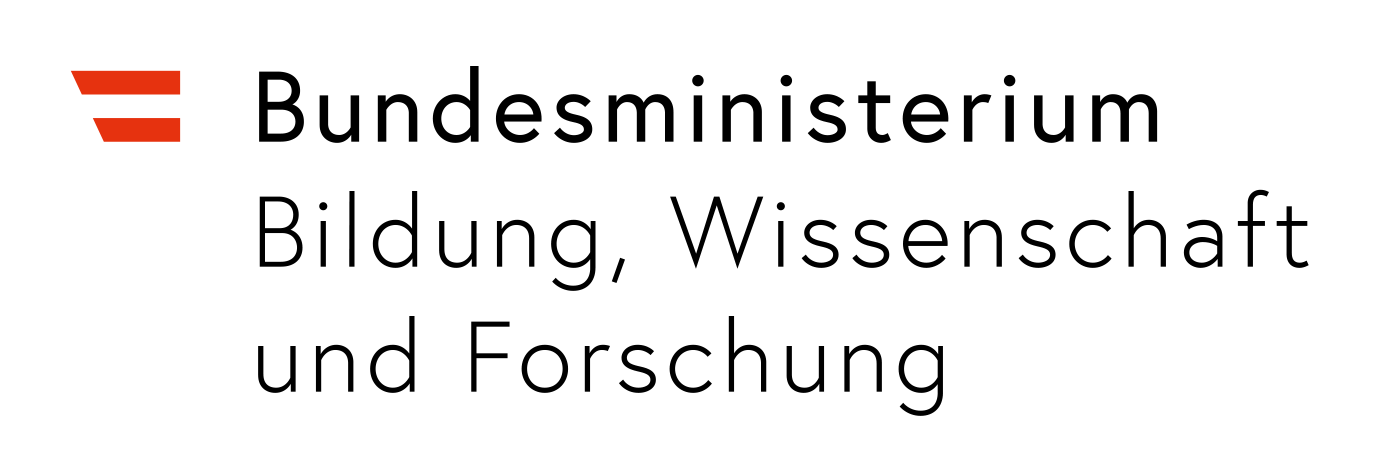



{/mlang de}
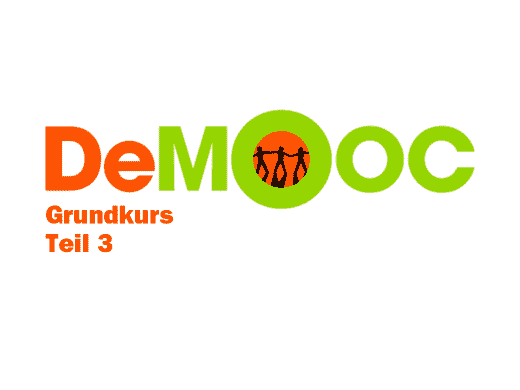
- Supervisor:in: Christin Reisenhofer
{mlang de}
Mag. Christin Reisenhofer MA ist wissenschaftliche Mitarbeiterin am Demokratiezentrum Wien. Zu ihren Aufgaben gehören die Konzeption und Durchführung von Workshops zur Politischen Bildung sowie die inhaltliche Erstellung, Gestaltung und Betreuung des DeMOOCs. Sie studiert Bildungswissenschaft (Masterstudium) und Geschichte, Sozialkunde und Politische Bildung sowie Deutsch im Rahmen des Diplom-Lehramtstudiums. An der Universität Wien war sie Studienassistentin im Arbeitsbereich der Psychoanalytischen Pädagogik, als Tutorin für verschiedenste Lehrveranstaltungen sowie als didaktische Schreibmentorin tätig. An der Donau Universität Krems ist sie als externe Lehrbeauftragte im Rahmen des Master-Universitätslehrgangs eEducation für die Betreuung des Moduls Medienpädagogik und -didaktik mitverantwortlich.
Gerhard Bisovsky Dr. ist Generalsekretär des Verbandes Österreichischer Volkshochschulen (vÖV). Er hat Politikwissenschaft studiert und eine Dissertation über staatliche Erwachsenenbildungspolitik verfasst. Bisovsky verfügt über eine langjährige praktische Erfahrung in der Erwachsenenbildung, hat über Erwachsenenbildung an österreichischen Universitäten und in Deutschland gelehrt, hat zahlreiche Fachbeiträge verfasst und ist in der Weiterbildung von ErwachsenenbildnerInnen tätig. Von 1996 bis 2012 hat er die Wiener Volkshochschule Meidling geleitet und dort, neben anderem, auch das digital gestützte Lernen (eLearning) aufgebaut. Von 2008 bis 2012 hat er das Netzwerkprojekt „Bildungsberatung in Wien“ geleitet. Er hat eine mehrjährige Erfahrung in und mit europäischen Bildungsprojekten und war von 2012 bis 2017 Vorstandsmitglied im Europäischen Verband für Erwachsenenbildung (EAEA). Seit 2012 ist er Chefredakteur des Magazins „Die Österreichische Volkshochschule“ (http://magazin.vhs.or.at) und Leiter des Büro Medienpreise, das den Radiopreis und den Fernsehpreis der Erwachsenenbildung vergibt sowie die Wissenschaftspreise des VÖV.
Mag.a Gertraud Diendorfer ist Vorstandsvorsitzende des Demokratiezentrums Wien und war bis 2018 dessen langjährige Leiterin. Ihre Arbeitsschwerpunkte sind Demokratieforschung, Politische Bildung, (E-)Partizipation, Migration und Integration, Geschlechtergeschichte. Sie kuratierte mehrere Ausstellungen, zuletzt „Demokratie – Grundlage unseres Zusammenlebens“, und hat eine große Expertise bei der Erarbeitung von (online) Lehr- und Unterrichtsmaterialien. Gründerin des Forum Politische Bildung sowie Mitherausgeberin und Redakteurin der Schriftenreihe Informationen zur Politischen Bildung.
Univ.-Prof. Dr. Dirk Lange ist Universitätsprofessor für die Didaktik der Politischen Bildung an der Universität Wien. Er leitet seit März 2018 das Demokratiezentrum Wien und ist Direktor des Instituts für Didaktik der Demokratie an der Universität Hannover. Dirk Lange war über viele Jahre Bundesvorsitzender der Deutschen Vereinigung für Politische Bildung (DVPB) und Direktor der Agentur für Erwachsenen- und Weiterbildung in Niedersachsen. Er verfügt über vielfältige internationale Erfahrungen, unter anderem als Honorary Professor der University of Sydney (Australien) und als Visiting Professor der Universität Zürich (Schweiz). Sein zentraler Forschungsgegenstand ist das Bürgerbewusstsein. Aktuelle Arbeitsschwerpunkte liegen in den Bereichen Inclusive Citizenship Education, Digitalisierung und Politische Bildung sowie Global Citizenship Education.“
Ulrich Ballhausen ist wissenschaftlicher Mitarbeiter des Institutes für Didaktik der Demokratie der Leibniz Universität Hannover und Lehrbeauftragter an der Universität Wien und der Fachhochschule Koblenz. Er ist seit 30 Jahren in der nonformalen politischen Jugend- und Erwachsenenbildung sowie in zahlreichen Gremien und ExpertInnengruppen der (europa-)politischen Bildungsarbeit, der internationalen Arbeit und der historisch-politischen Bildung aktiv. Als Vorsitzender des Arbeitskreises deutscher Bildungsstätten, dem größten Zusammenschluss von Bildungsstätten und Bildungseinrichtungen der politischen Jugend- und Erwachsenenbildung in Deutschland, ist er maßgeblich an der Gestaltung dieses Professionsfeldes in Deutschland beteiligt.
{/mlang de}
{mlang de}Willkommen zum „DeMOOC: Grundkurs Teil 3“ des Demokratie MOOC!
Was ist der Demokratie MOOC?
Die MOOC-Serie „Demokratie MOOC“ – kurz DeMOOC – ist eine kostenfreie Onlinekurs-Serie für eine offen zugängliche und digitale demokratiepolitische Bildung für Erwachsene, die in einer Kooperation zwischen dem Verband Österreichischer Volkshochschulen und dem Demokratiezentrum Wien umgesetzt wird. Der DeMOOC wird in mehreren Selbstlernkursen modular angeboten und läuft ohne zeitliche Begrenzung, sodass eine Teilnahme unabhängig von Ort und Zeit ermöglicht wird. Die Kurse der Serie DeMOOC unterstützen die Teilnehmenden dabei, ein Basiswissen von Demokratie, Politik, politischen Prozessen und gesellschaftlichen Strukturen aufzubauen, um dieses Wissen in die eigene Lebenswelt integrieren zu können. Die verschiedenen Themenschwerpunkte werden dabei immer wieder auf demokratiepolitisch relevante Fragestellungen rückbezogen, um so die Stärkung einer kritischen und mündigen Bürger:innenschaft zu fördern.
Weitere Informationen zur MOOC-Serie „Demokratie MOOC“ finden Sie unter:
An wen richtet sich dieser Kurs?
Die Grundkurse Teile 1 bis 3 des DeMOOC stellen ein Curriculum für die demokratiepolitische Bildung dar, wobei die vollständigen Lehr- und Lernmaterialien zur Verfügung gestellt werden. So dienen diese MOOCs einerseits der Weiterbildung von allen interessierten Personen, Multipliaktor:innen, Kursersteller:innen, Lehrer:innen oder (Sozial-)Pädagog:innen. Andererseits stellen die MOOCs auch Materialien und Methoden zur Verfügung, damit sich die Teilnehmenden auch motiviert und in der Lage fühlen, Kurse, Unterricht oder Projekte zur Politischen Bildung zu entwickeln und anzubieten.
Sie können an diesem dritten Teil unabhängig von den vorherigen Lektionen teilnehmen. Ein einführendes Video finden Sie im ersten Teil des Demokratie MOOC eingebettet:
DeMOOC: Grundkurs Teil 1 - Lektion 1
Die Grundkurse Teil 1 und Teil 2 des DeMOOC finden Sie hier:
{/mlang de}
{mlang de}
Durch die Absolvierung des DeMOOCs soll ein näheres Verständnis von Demokratie, Politik und Gesellschaft auf verschiedenen politischen Ebenen entwickelt werden können, um so den eigenen Zugang zur Politik zu stärken und den eigenen aktiven Anteil am politischen System erfahren zu können.
Dafür ist es einerseits notwendig, ein gewisses Basiswissen von Demokratie, Politik, politischer Prozesse und gesellschaftlicher Strukturen aufzubauen, um in einem zweiten Schritt dieses Wissen in der Praxis umsetzen zu können und in die eigene Lebenswelt integrieren zu können. Die Eigenwahrnehmung als aktive und mündige Bürger_innen wird dahingehend gestärkt, sowie die dahingehenden Kenntnisse und Fähigkeiten erweitert. Diese Kenntnisse sollen auch auf die künftige eigene Kursgestaltung, pädagogische Arbeit oder das Unterrichten positiven Einfluss nehmen.
{/mlang de}
{mlang de}
Das Ziel des DeMOOCs ist es, die Politische Bildung in der Erwachsenenbildung, in der außerschulischen sowie schulischen Bildung, aber auch unter allgemein Interessierten zu stärken. So eignet sich der DeMOOC insbesondere für Multiplikator_innen, Kursplaner_innen, Lehrer_innen, Sozialarbeiter_innen, Pädagog_innen und für alle Personen, die an dem Themenfeld der Politischen Bildung interessiert sind. Auch die Programme in der „Initiative Erwachsenenbildung“ sowie auch viele andere Kurs- und Angebotsbereiche in der Erwachsenenbildung können vom DeMOOC profitieren.
{/mlang de}
{mlang de}
Keine Vorkenntnisse nötig.
{/mlang de}
{mlang de}
Der MOOC wird sich in zehn Module gliedern, die jeweils in sich abgeschlossen sind, jedoch inhaltliche und methodische Anfügungspunkte zueinander bieten. Jedes Modul beinhaltet wiederum Lektionen, die die vielfältigen inhaltlichen Ausrichtungen eines Themas repräsentieren. Insgesamt entsteht so ein Basis-Programm zur Politischen Bildung.
Modulstruktur des MOOCs
Modul 1: Politik und Demokratie
Modul 2: Handlungsmöglichkeiten im politischen System Österreichs
Modul 3: Demokratie und Medien
Modul 4: Geschichte der Demokratie – Kampf um Demokratie
Modul 5: Migration, Integration und Identitäten
Modul 6: Demokratie in Europa und Demokratien weltweit
Modul 7: Grundrechte und Rechtsstaat
Modul 8: Demokratie und Wirtschaft
Modul 9: Freiheit und Sicherheit
Modul 10: Staat, Ideologien und Religionen
Die ersten drei Module werden am 18.03.2019 starten, drei weitere Module werden am 13.05.2019 starten und die letzten vier Module gehen am 17.06.2019 online.
{/mlang de}
{mlang en}
For actively participating in the course you will receive an automatic confirmation of participation (certificate) which includes your username, the course title, course duration as well as the hours required to complete the course. We want to point out that this certificate merely confirms that the user answered at least 75% of the self-assessment questions correctly.
{/mlang en}
{mlang de}
Für die aktive Teilnahme am Kurs erfolgt bei Abschluss die Ausstellung einer automatisierten Teilnahmebestätigung, welche Ihren Benutzernamen, den Kursnamen, die Kursdauer und den Aufwand beinhalten. Es wird darauf hingewiesen, dass es sich nur um eine Bestätigung handelt, die aussagt, dass die Benutzerin oder der Benutzer zumindest 75% der gestellten Selbstüberprüfungsfragen richtig beantwortet hat.
{/mlang de}
{mlang en}
This work is licensed under a {licenselink}
{/mlang en}
{mlang de}
Dieses Werk ist lizenziert unter einer {licenselink}
{/mlang de}
{mlang de}Ein MOOC entwickelt und erstellt von

Das Demokratiezentrum Wien ist eine unabhängige wissenschaftliche Einrichtung mit Aufgaben in der Demokratieforschung und der Demokratiebildung. Unsere empirische und theoretische Forschung dient der wissenschaftlichen Erkenntnis, dem demokratiepolitischen Diskurs und dem Transfer in Bildungsangebote. Im Sinne einer subjektorientierten und emanzipativen Politischen Bildung ist unsere Leitidee bei unseren Bildungsangeboten die Förderung von Mündigkeit der Bürger:innen sowie ihrer Fähigkeit zur politischen Partizipation.
Texterstellung: Modul 1: Mag. Dr. Günther Sandner; Modul 2, 7, 9, 10: Susanne Reitmair-Juárez MA; Modul 4, 9: Mag. Simon Usaty; Susanne Reitmair-Juárez MA; Modul 3, 6, 8 Christin Reisenhofer BA; Modul 10 Susanne Reitmair-Juárez MA; Jessica Moser MA; Ergänzende Vertiefungsunterlagen: Mag.a Lea Hintenberger; Mitarbeit von Kerstin Scheibenpflug, BA
Im Auftrag von

Der Verband Österreichischer Volkshochschulen ist die Dachorganisation aller 256 österreichischen Volkshochschulen und einer von zehn Verbänden in der Konferenz der Erwachsenenbildung Österreichs, der Arbeitsplattform der gemeinnützigen Erwachsenenbildung. Die Volkshochschulen haben in ihrer mehr als hundertjährigen Geschichte wichtige und innovative Angebote zur politischen und zeithistorischen Bildung entwickelt und umgesetzt. Demokratiepolitische Bildung ist ein wichtiges Anliegen, für dessen Umsetzung in der österreichischen Erwachsenenbildung sich die Konferenz der Erwachsenenbildung Österreichs vehement einsetzt. Der Demokratie-MOOC wird allen Akteur:innen in der Erwachsenenbildung, Fortbildung und Weiterbildung zur Verfügung gestellt.
Gefördert aus Mitteln des Bundeskanzleramtes (Gedenkjahr), des Zukunftsfonds der Republik Österreich und der Kammer für Arbeiter und Angestellte.




{/mlang de}

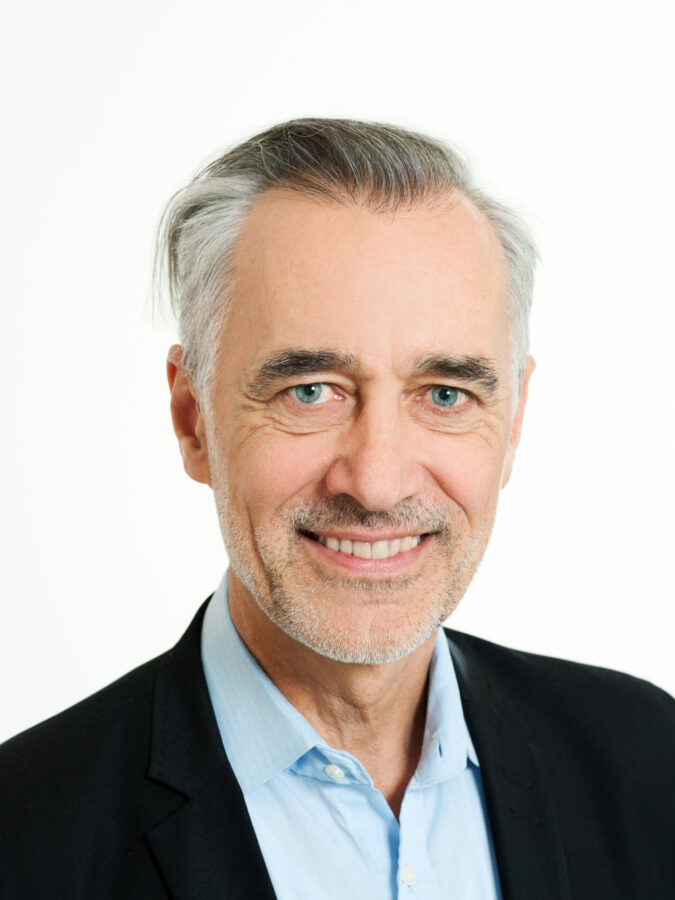
Univ.-Prof. Dr. Dirk Lange
is a university professor for didactics of civic education at the University of Vienna. He has headed the Demokratiezentrum Wien since 2018 and is director at the Institute for Didactics of Democracy at the University Hannover. For many years, Dirk Lange was federal chairman of the German Association for Civic Education (DVPB) and director of the Agency for Adult and Continuing Education in Lower Saxony. His central research object is civic consciousness. His current work focuses on inclusive citizenship education, digitalization and civic education as well as global citizenship education.
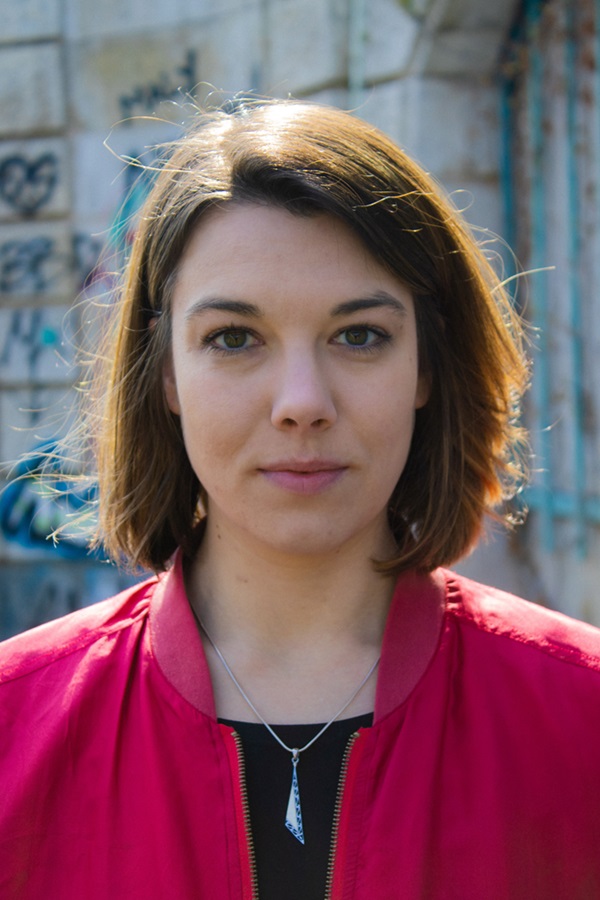
Stefanie Fridrik, BA BA MA works as a research assistant, project manager and trainer at the Vienna Democracy Center. Her tasks include the conception, coordination and implementation of workshops and seminars for different target groups and the supervision of democracy education projects for adults in the field of e-learning. Her focus is on political and democratic didactics, where she is primarily concerned with the topics of sensitization to prejudice, hostility towards democracy and democratic scepticism and participation in everyday practice.
Content-related co-operation: Silas Nathanael Richter, BA
Welcome to the in-depth course “DeMOOC: Sustainability and Democracy - Connections, Potentials and Obstacles” of the Demokratie MOOC!
What is the Demokratie MOOC?
The MOOC series “Demokratie MOOC” - DeMOOC for short - is a free online course series for openly accessible and digital democratic political education for adults, which is being implemented in a cooperation between the Association of Austrian Adult Education Centers and the Democracy Center Vienna. The DeMOOC is offered in several modular self-study courses and runs without a time limit, so that participation is possible regardless of time and place. The courses in the DeMOOC series help participants to build up a basic knowledge of democracy, politics, political processes and social structures so that they can integrate this knowledge into their own lives. The various main topics are always related back to issues relevant to democratic politics in order to promote the strengthening of critical and responsible citizenship.
Further information on the MOOC series “Demokratie
MOOC” can be found at:
Who is this course aimed at?
The MOOC “DeMOOC: Sustainability and Democracy - Connections, Potentials and Obstacles” is an extension and deepening of the DeMOOC. With compactly compiled information texts, the course is aimed at learners who want to find out about questions and problems relating to sustainability and sustainable development, particularly against the background of their social, ecological and (democratic) political dimensions. In addition, the course offers multimedia, specialist input for working and reflecting on the content as well as examples and materials for didactic preparation as inspiration for educational work. The course is therefore also suitable for teachers and multipliers who want to incorporate issues relating to sustainability as a guiding principle, political agenda and educational goal into their educational work.
Although the MOOC is thematically linked to previous courses in the DeMOOC series, it can be completed independently of them. You will find an introductory video to the DeMOOC embedded in the first unit of the basic course part 1:
The MOOC “DeMOOC: Sustainability and Democracy - Connections, Potentials and Obstacles” consists of four units that build on each other in terms of content. The course serves as a thematic extension of the DeMOOC series and focuses on the topic of sustainability in the context of society, international politics, democracy and education, among other things.
Unit 1 begins with the meaning of the term
sustainability. First, the origins of the term and its historical development
up to the establishment of sustainability in a scientific context are
explained. Following on from this, the political developments in the 20th
century towards sustainability as a guiding principle for action are traced
using trend-setting international agreements and reports. In the next step, the
most important sustainability models are explained with reference to the
various dimensions of sustainability (social, ecological, political, economic).
Finally, the unit focuses on the topic of greenwashing in the context of
corporate strategies and explains how to recognize greenwashing and what you
can do about it yourself.
Unit 2 examines the establishment of
sustainability goals and strategies from the global to the local level, with a
focus on developments since the turn of the millennium. The 2030 Agenda and the
Sustainable Development Goals as well as the European Green Deal and Local
Agenda 21 are discussed in depth. The central points of criticism of these
strategies and their implementation are also repeatedly discussed. Finally, a
degrowth-critical perspective is introduced with the concept of degrowth. In
line with this criticism, alternatives to growth-oriented production and
lifestyles are presented, as proposed and demanded by the degrowth movement.
Unit 3 focuses on the concept of the imperial mode
of living as an explanation for worsening crises and as a structural obstacle
to sustainable development. The extent to which political decisions and
everyday actions in the Global North favor these global dynamics and thus
prevent a good life for all is shown. To this end, the concept is explained in
the context of the need for a socio-ecological transformation. As a
counterproposal to this, the question of alternatives and possibilities for
solidary ways of living and doing business will be explored. To further deepen
the examination of the link between social and ecological issues, the unit concludes with the topic of climate justice.
The final key topic of the course is the connection between sustainable development and democracy as a form of government and society. In unit 4, the connections and contradictions arising from this are firstly discussed. The concept of Global Governance as a political order beyond the nation state is then discussed and the question of how this could contribute to sustainable development is explored. Subsequently, possibilities and forms of civil society participation on the topic of sustainability are presented and discussed both within and outside of an institutional framework. Finally, the role of (political) education in this context is considered by taking a practical look at the content and objectives of Global Citizenship Education.
By completing the courses in the DeMOOC series, participants should be able to develop a deeper understanding of democracy, politics and society at various political levels in order to strengthen their own access to politics and experience their own active participation in the political system. The aim of the DeMOOC is to strengthen political education in adult education, in extracurricular and school education, but also among generally interested people. The DeMOOC is therefore particularly suitable for multipliers, course planners, teachers, social workers, educators and anyone interested in the field of civic education. The programs in the “Initiative Erwachsenenbildung” as well as many other course and offer areas in adult education can also benefit from the DeMOOC.
The in-depth course “DeMOOC: Sustainability and Democracy - Connections, Potentials and Obstacles” is designed to enable interested parties to get to grips with sustainability issues without any specific prior knowledge. Course participants are given a basic factual understanding of the concepts and terms of the sustainability discourse. The information materials, work tasks, radio reports and videos provide a targeted introduction to the topic area and at the same time provide the necessary points of reference to place the basic knowledge acquired in a broader social context. In addition, interviews conducted specifically for the course offer insights into various practical perspectives on the opportunities and challenges of implementing sustainability goals. In addition, the participants of the MOOC receive impulses and documents for addressing this complex of topics in their own educational work. Didactic principles for adult education are offered for this purpose.
No previous knowledge is necessary.
The MOOC consists of the following four units, which are self-contained but build on each other and focus on different topics:
Unit 1: Sustainability – a changing concept
Workload: approx. 4 hours
Unit 2: Pathways to sustainability
Workload: approx. 4 hours
Unit 3: Imperial mode of living – how sustainable development is prevented
Workload: approx. 4 hours
Unit 4: Sustainability and democratic participation
Workload: approx. 4 hours
Unit 1 is the theoretical basis and the most comprehensive unit of the course. It clarifies key terms, concepts and models in connection with various dimensions of sustainability. Units 2 and 3 build on this by offering selected in-depth topics and placing theoretical approaches in the context of political and social developments and structures. In the final unit 4, the focus is on democratic and civil society options for action and the role of education.
Each unit is divided into sub-chapters and contains information texts and media content (explanatory videos, radio reports) as well as specific tasks and a didactic presentation of the respective topics. Both the information texts and the didactic material are freely available to course participants. Each unit begins with a work assignment in the form of a forum contribution on predefined reflection questions. After completing the content chapters, participants return to this and, in a second step, write a response to their own forum post. Each unit ends with a quiz on the content covered.
The units are activated individually on a weekly basis and are then freely available as a self-study course for an unlimited period of time.
For active participation in the course, upon completion, an automated certificate will be issued, which will include your username, the course name and the completed units. It should be noted that this is only a confirmation that the user has correctly answered at least 75% of the self-assessment questions (multiple choice quiz) asked.
Unless otherwise indicated, the content provided in the course is made available under the following license: CC BY 4.0 Demokratiezentrum Wien. The content may be used for educational and other non-commercial purposes on the condition that the following name is cited as the source: Demokratiezentrum Wien. External linked materials, videos etc. may be excluded from the Creative Commons license. Please note the applicable regulations.
A MOOC developed and created by

The Demokratiezentrum Wien (Democracy Center Vienna) is an independent scientific institution with tasks in democracy research and democracy education. Our empirical and theoretical research serves the scientific knowledge, the democratic political discourse and the transfer into educational offers. In the sense of a subject-oriented and emancipative civic education, our guiding idea in our educational offers is the promotion of citizens’ maturity and their ability to participate politically.
On behalf of
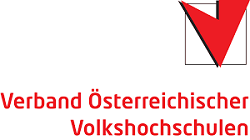
The Association of Austrian Adult Education Centers is the umbrella organization of all 256 Austrian adult education
centers and one of ten associations in the Conference of Adult Education
Austria, the working platform of non-profit adult education. In their more than
one hundred years of existence, the adult education centers have developed and
implemented important and innovative offers for political and contemporary
education. Democracy education is an important concern, and the Conference of
Austrian Adult Education is vehemently committed to its implementation in
Austrian adult education. The Democracy MOOC is made available to all actors in
adult education, further education and training.
Funded by the Federal Ministery of Education, Science and Research.

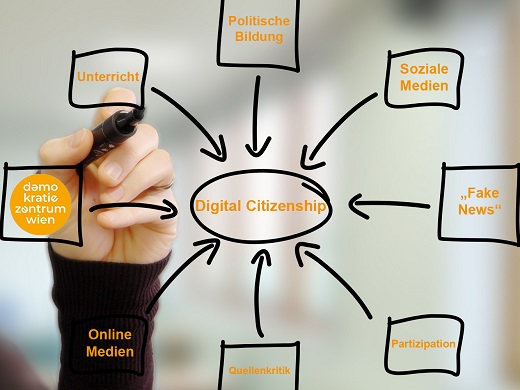
Univ.-Prof. Dr. Dirk Lange is a university professor for didactics of civic education at the University of Vienna. He has headed the Demokratiezentrum Wien since 2018 and is director at the Institute for Didactics of Democracy at the University Hannover. For many years, Dirk Lange was federal chairman of the German Association for Civic Education and director of the Agency for Adult and Continuing Education in Lower Saxony. He has varied international experiences, among others as an Honorary Professor at the University of Sydney (Australia) and as a Visiting Professor at the University of Zurich (Switzerland). His central research object is civic consciousness. His current work focuses on inclusive citizenship education, digitalization, civic education and global citizenship education.
Mag.a Lea Hintenberger is a research associate at the Demokratiezentrum Wien. She graduated from the University of Vienna with a teaching degree in history, social science and civic education as well as physical education and sports. She worked in civic education and completed an occupational training in political and media didactics (Institut für Kulturdidaktik, Vienna). After teaching at the Gymnasium am Augarten (Vienna) she has been working as a research associate at the Democracy Centre Vienna since 2021. Her tasks include the conception and implementation of workshops and activities in the field of civic education for different target groups. In addition, she is active in projects of democratic political education for adults in the e-learning field as well as in the support of the committee work of the FSW-Customer Council.
Welcome to the MOOC "Digital Citizenship- Competent in Democracy and Teaching"!
What can you expect from this course? This MOOC is a training course for teachers, other professionals working in the educational field and generally interested participants on the topic of digital citizenship and fake news. With the help of this course, you will obtain a sound overview of online and social media in the context of democracy and civic education. Both democratic opportunities for action and potential risks and strategies of manipulation of online and social media are central in this course.
Who is this MOOC for? This course is primarily addressed to teachers and multipliers, who on the one hand would like to expand their competences and knowledge in this subject area, and on the other hand would like to gain a sound basis for integrating this topic into their own educational work.
By completing the MOOC „Digital Citizenship – Competent in Democracy and Teaching” you will gain a deeper understanding of online and social media and how they influence different levels of democratic societies. Social media and the internet as a whole are essential tools for action in today’s society, they are a widely used source of information and provide a variety of communication options.
In order to gauge the importance of (online and social) media for a democratic society, both participative possibilities for action and sources of danger of online media are reflected on. Essential definitions, manipulative technologies and the informed use of online media and sources from the internet are discussed.This MOOC aims at two outcomes: On the one hand it serves as further education and training for all interested teachers, educators, and multipliers. On the other hand this course provides materials and tips for educational work. These should help to approach the topic in one's own lessons.
The course participants’ self-perception as responsible users of the internet should be strengthened. The knowledge they acquire can be used for their own future pedagogical and educational work.
By completing this MOOC, the participants’ digital citizenship will be strengthened and the theoretical and didactic basis for their own educational work in this area will be expanded. As part of the course the participants gain knowledge and competences in the following areas, among others:
- Knowledge of central concepts regarding online and social media
- Development of an awareness of one’s own responsible digital citizenship
- Reflection on participation opportunities on the internet
- Knowledge of tools and analytical steps in terms of the critical use of internet sources
- Identifying manipulation and the motivation behind it
- Reflection on social media, its socio-political context, and its responsible use
- Accessing information and (moving) images from online and social media in a critical manner
- Ability and willingness to address this group of themes in one’s own educational work
- Utilization of the acquired knowledge for one´s own teaching
No special knowledge is required for this MOOC.
The MOOC consists of three lessons which are related in content and methodology. Altogether they form a basic program on „Digital Citizenship“ with a special focus on the topic „Fake News“ in online und social media.
Each lesson includes (a) video(s), informational texts, tasks, practice examples, forum discussions, didactic tips or suggestions and a final quiz. Lesson 1 states the thematic basis and is the most extensive lesson of the course. Lessons 2 and 3 build on lesson 1 and foster in-depth understanding (with a lower workload).
Lesson 1: Digital Citizenship: The possibilities and dangers of online and social media in democracy
Workload: approx. 5 hours
In this lesson you get a general idea of the connection between (online) media and civic education. The course introduces both the possibilities of participation on the internet and the possible dangers of information consumption via online and social media in the context of democratic societies. In addition, essential terms are defined.
Lesson 2: Manipulation strategies and media literacy
Workload: approx. 3 hours
Based on the contents of lesson 1 this lesson approaches widespread manipulative strategies and technologies in online and social media. Moreover, you address essential questions of source criticism on the internet and reflect on the meaning of your own bias (own preferences and prejudices).
Lesson 3: YouTube, TikTok & Co. – (Moving) Images and „Fake News“ on social media
Workload: approx. 3 hours
The final lesson of the course addresses social media in the context of disinformation. The focus is on images and moving images (videos) in particular. You will be introduced to essential steps of video analyses.
For actively participating in the course you will receive an automatic certificate which includes your username, the course name as well as the completed lessons. We want to point out that this certificate merely confirms that the user answered at least 75% of the self-assessment questions (multiple choice quiz) correctly.
Course Picture: Edited version of the following picture: LTDatEHU, https://pixabay.com/de/photos/technologie-klassenzimmer-bildung-1095751/ (last online access on 25.04.2022). Please note that this image is exempt frpm the course´s CC licencse and is subject to the Pixabay license.
A MOOC developed und created by Demokratiezentrum Wien (Democracy Centre Vienna).
The Democracy Centre Vienna is an independent scientific institution dealing with democracy research and democracy education. Our empirical and theoretical research furthers academic knowledge, strengthens democratic political discourse and transfers outcomes into educational opportunities. Through subject-oriented and emancipative civic education, we promote active citizenship and participation in politics.
Video conception and content-related cooperation: Verena Mischitz, BA, BA studied journalism and communication science, as well as political science at the University of Vienna. She has been working at the Democracy Centre Vienna since October 2021. Moreover, she works as a video journalist and moderator at the daily newspaper "Der Standard".
Content-related cooperation: Lisa Zauber, BA.
With support from
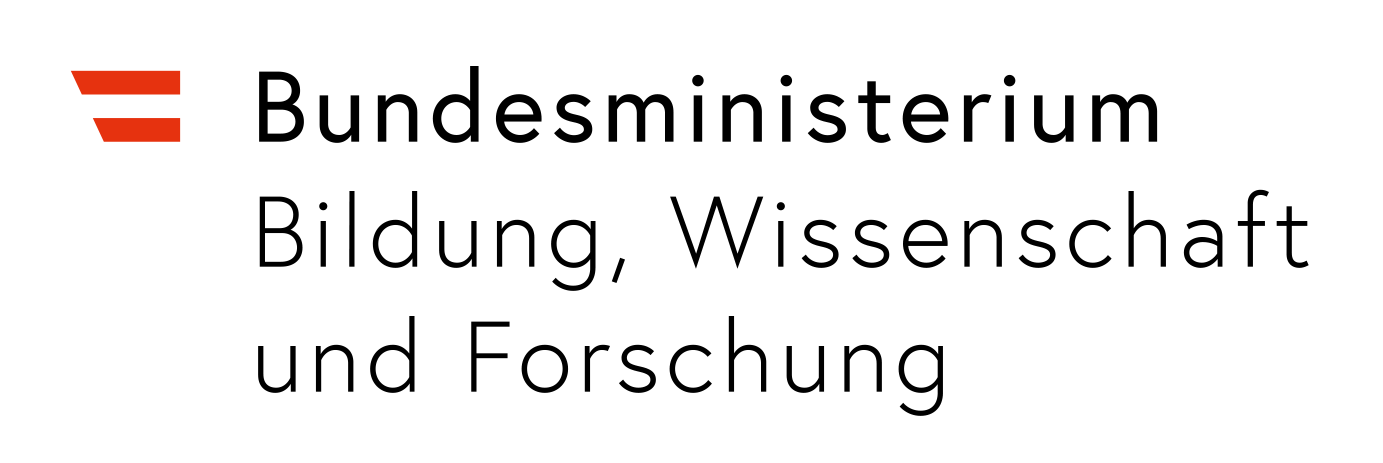
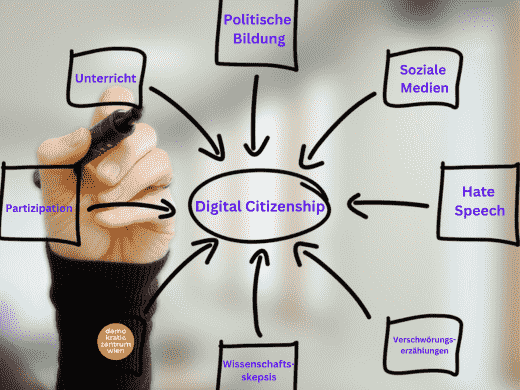
Univ.-Prof. Dr. Dirk Lange is a university professor for didactics of civic education at the University of Vienna. He has headed the Democracy Centre Vienna since 2018 and is director of the Institute for Didactics of Democracy at the University Hannover. For many years, Dirk Lange was federal chairman of the German Association for Civic Education and director of the Agency for Adult and Continuing Education in Lower Saxony. He has varied international experiences, among others as an Honorary Professor at the University of Sydney (Australia) and as a Visiting Professor at the University of Zurich (Switzerland). His central research object is civic consciousness. His current work focuses on inclusive citizenship education, digitalization, civic education and global citizenship education.
Mag.a Lea Hintenberger is a research associate at the Demokratiezentrum Wien. She graduated from the University of Vienna with a teaching degree in history, social science and civic education as well as physical education and sports. She worked in civic education and completed an occupational training in political and media didactics (Institut für Kulturdidaktik, Vienna). After teaching at the Gymnasium am Augarten (Vienna) she has been working as a research associate at the Democracy Centre Vienna since 2021. Her tasks include the conception, coordination and implementation of workshops, seminars and further education programs on political education for different target groups and the supervision of projects on democratic political education for adults in the e-learning area.
Welcome to the MOOC „Digital Citizenship – Informed against threats to democracy online“!
What can you expect from this course? This MOOC is a training course for teachers, other professionals working in the educational field and interested participants in general on the topic of digital citizenship. With the help of this course, you will obtain a sound overview of online and social media in the context of democracy and civic education. Special focus is placed on the topics of hate speech, conspiracy narratives and skepticism towards science.
Another DiCiMOOC (Digital Citizenship - Competence in Democracy and Education) deals with the topics of fake news and manipulative technologies on the internet.
Who is this MOOC for? This course is primarily addressed to teachers and multipliers, who on the one hand would like to expand their competences and knowledge in this subject area, and on the other hand would like to gain a sound basis for integrating this topic into their own educational work.
By completing the MOOC "Digital Citizenship - Informed against threats to democracy online", you will gain a deeper understanding of online and social media in relation to different levels of democratic societies. The Internet and social media represent an essential scope of action in today's society as well as a widely used source of information and a multitude of communication options.
In order to introduce the importance of online and social media for a democratic society, both the potential of the internet to promote as well as to undermine democracy are reflected upon. The main topics are always approached from the perspective of society as a whole as well as from the specific perspective of the internet. The focus is on essential definitions and the reflective use of online media.
This MOOC aims at two outcomes: On the one hand it serves as further education and training for all interested teachers, educators, and multipliers. On the other hand this course provides materials and tips for educational work. These should help to approach the topic in one's own lessons.
The course participants' self-perception as responsible citizens on the Internet and their individual judgment skills are to be strengthened and the knowledge they acquire made available for their own future pedagogical and educational work.
By completing this MOOC, the participants’ digital citizenship will be strengthened and the theoretical and didactic basis for their own educational work in this area will be expanded. As part of the course the participants gain knowledge and competences in the following areas, among others:
- Developing an awareness of one's own responsible digital citizenship
- Reflection on tendencies on the Internet that promote and endanger democracy from a participation theory perspective
- Knowledge of key terminology and well-founded basic information in the context of hate speech, conspiracy narratives and skepticism towards science
- Identifying features of conspiracy narratives and associated mentalities
- Significance of the digital media public sphere(s) in the context of hate speech, conspiracy narratives and skepticism towards science
- Reflection on the main topics from the perspective of (school) educational work
- Ability and willingness to address this range of topics in their own educational work
No special knowledge is required for this MOOC.
The MOOC consists of three lessons which are related in content and methodology. Altogether they form a basic program on digital citizenship with a special focus on the topics hate speech, conspiracy narratives and skepticism towards science.
Each lesson includes (a) video(s), informational texts, tasks, practice examples, forum discussions, didactic tips or suggestions and a final quiz. Lesson 1 states the thematic basis and is the most extensive lesson of the course. Lessons 2 and 3 build on lesson 1 and foster in-depth understanding (with a lower workload).
Lesson 1: Digital Citizenship: Participation and hate speech online
Workload: Approx. 5 hours
This lesson aims to create a fundamental basis for the topic. The aim is to reflect on the tendencies of online media to promote and inhibit participation from a participation theory perspective and to introduce the topic of hate speech. This lesson is the introductory and therefore the most comprehensive lesson of this course.
Lektion 2: Conspiracy narratives – A challenge in society and digital media
Workload: Approx. 3 hours
In this lesson, building on the content of lesson 1, an approach is made to the main topic of conspiracy narratives. It introduces conceptual definitions, identifying features and the importance of online and social media.
Lesson 3: Skepticism towards science – interest, skepticism, digital media and democracy
Workload: Approx. 3 hours
The last lesson of the course deals with scientific interest and skepticism towards science in Austria. In addition to fundamental questions, the current demands and challenges of (school) educational work are also reflected upon.
Course Picture: Edited version of the following picture: LTDatEHU, https://pixabay.com/de/photos/technologie-klassenzimmer-bildung-1095751/ (last online access on 25.04.2022). Please note that this image is exempt frpm the course´s CC licencse and is subject to the Pixabay license.
A MOOC developed und created by Demokratiezentrum Wien (Democracy Centre Vienna).
The Democracy Centre Vienna is an independent scientific institution dealing with democracy research and democracy education. Our empirical and theoretical research furthers academic knowledge, strengthens democratic political discourse and transfers outcomes into educational opportunities. Through subject-oriented and emancipative civic education, we promote active citizenship and participation in politics.
Content-related cooperation:
Jan Paul Möller, BA studied sociology and history at the University of Potsdam in Germany and is currently studying sociology and political science at the University of Vienna. He worked as a tutor at the Chair of General Sociology and as a research assistant at the Chair of Social Structure Analysis at the University of Potsdam.
Mel Christian Arnecke, BA MA is a political scientist who has been working at the Demokratiezentrum Wien since 2023. Apart from a scientific study on the Viennese youth's ideas on conflict, he is tasked with the design and realisation of workshops for adolescents and young adults. Some focal points of these programmes are, for instance, the familiatisation with democratic principles and the prevention of discrimination or conspiracy narratives. Besides his work at the Demokratiezentrum, he started to work as a Contributing Author for the Second Austrian Assessment Report (AAR2) of the Austrian Panel on Climate Change (APCC) after earning his degree from the University of Vienna in early 2024.
Natalie Ziyi Scherer, BA is currently studying Political Science at the University of Vienna. She has been working as a student researcher at the Demokratiezentrum Wien since mid-2022 and engages an activist in various socio-political contexts. At the Demokratiezentrum Wien she works on EU Projects and is primarily involved in developing materials for REACT (Recognising Extremism and Conspiracy Theories).
With support from
